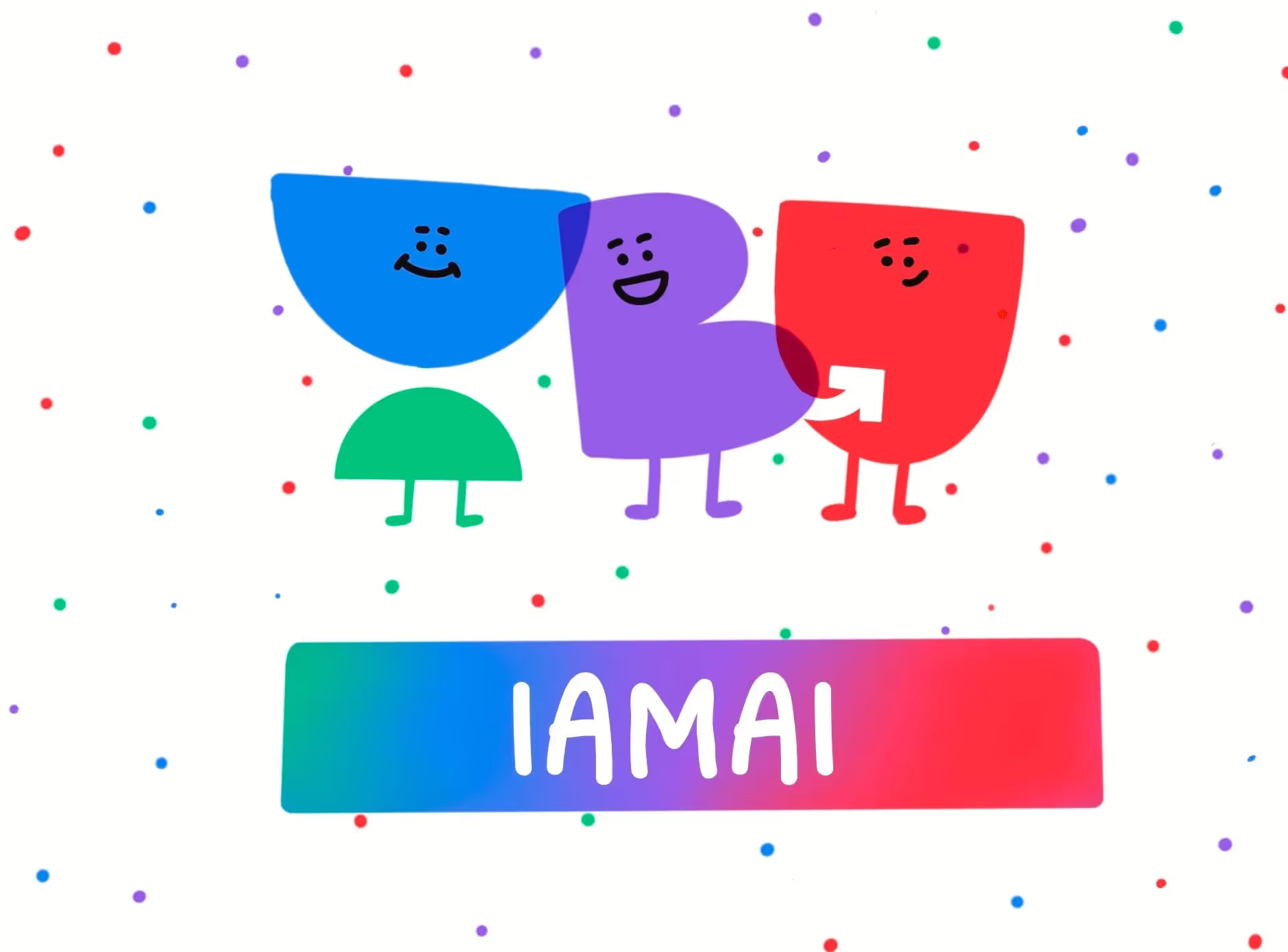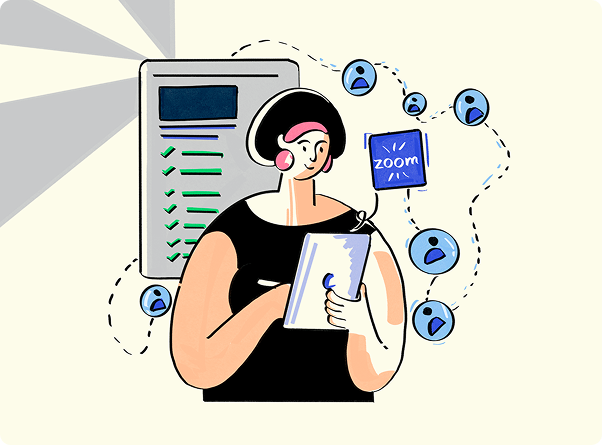




Key Takeaways
The Indian Software Industry Round Table (IAMAI) has launched a consortium of EdTech firms aimed at helping the industry. Byju’s, Unacademy, and upGrad are among the founders. The founders have a lot to gain in working together to push critical issues as they feel the government’s intent is right, but the execution is lacking.
The IAMAI believes that it can help solve these shortcomings. At the launch event in New Delhi on Wednesday, several industry leaders spoke on EdTech and its implementation in India. In a bid to enable the industry to collaborate and innovate together, IAMAI, the not-for-profit umbrella organization for India’s digital enterprises, today established a consortium for EdTech firms.
The Consortium is India’s largest digital education association – The IndUS Entrepreneurs. The other members of the Consortium include - India’s fastest growing online education platform – Byju’s, Bangalore based Unacademy, Gurgaon based upGrad, Delhi based Bento Labs, educational content provider GreyCampus and Cognizant.
What is IAMAI?
IAMAI is the Internet and Mobile Association of India. It has over 700 member companies, including Google, Amazon and Flipkart. Its stated mission is to “lead the growth of the digital economy in India by promoting industry-friendly policies and creating an enabling ecosystem.”
IAMAI is the acronym for the Internet and Mobile Association of India. IAMAI is an association of companies in the Internet, Mobile, and allied businesses committed to promoting e-commerce for all sections of society in India. The organization aims to spread knowledge about and adopt new technologies that can improve business operations. It also intends to lobby government bodies and institutions to facilitate growth in its infrastructure.
It was formed in February 2000 by a handful of companies that saw great potential in the e-commerce market. Since then, it has grown into a large body representing over 500 members. IT companies that provide software solutions, hardware companies that manufacture products related to IT, service providers who provide services such as hosting and domain registration, advertising companies that offer marketing solutions and consulting firms that advise on business strategy.
IAMAI is managed by a Council elected from its Board of Directors from amongst its members. One director on the Council represents each member company. The Council oversees the activities of IAMAI towards meeting its objectives. IAMAI just announced its latest initiative: a consortium of EdTech startups called EdTech Developers Community (EDC) in partnership with Byju’s, Unacademy, upGrad and others. EDC will be a non-profit organization that will advocate for the industry and develop standards for education technology in India. It will also organize a conference called EdTech Conclave in August.
What is the Consortium about?
The Internet and Mobile Association of India (IAMAI) has launched a new EdTech Industry Consortium in association with the ministry of human resources development (MHRD). The aim is to create a level playing field for the industry by bringing various stakeholders together. The ISB-IAMAI Edutech Regulatory Task Force, or ERTF, is led by ISB Director Atul Sood and IAMAI’s President Subho Ray. The task force will also have members from other associations such as Nasscom, TiE, TiE Delhi NCR, IMS, NASSCOM Education Foundation, CII and CFI.The ERTF will try to coordinate with regulators such as AICTE and the HRD Ministry on behalf of all players in the education technology market, said a statement from IAMAI.
The Consortium will include Byju’s, Unacademy and upGrad. IAMAI said it would bring together all stakeholders, including the government and academia, to ensure a “robust” ecosystem. The first meeting of the newly formed Consortium was held on September 1 in Delhi, it added. A statement from IAMAI president Subho Ray said: “There was a need for such an industry-led body to address concerns that are specific to the EdTech ecosystem. The industry will be able to provide inputs for creating a fair and conducive environment for innovation and entrepreneurship.”
The statement also said: “There will be a common ‘Code of Conduct’ that will be adhered to by the companies, along with a two-tier grievance redressal mechanism to protect the interests and rights of the consumers. This will specifically look into issues such as refunds and cancellations and handling of complaints related to the product or service offered. ”The common ‘Code of Conduct’ that will be adhered to by the companies will also be released by the task force. This code would lay out clear guidelines for how EdTech companies should operate and serve their users.
All consumers will be able to complain to a government agency if they feel that a product has caused them harm. The government recognizes that there is a need for a consumer protection law and has therefore set up a mechanism to address consumer grievances.
What does the Consortium do for students/customers?
Over the last decade, there have been many changes in the way students approach their education. The traditional classroom setting has given way to more self-directed learning. And with more and more students preferring to study at home, a student needs to have access to quality content ‘24x7x365’.
The EdTech sector is growing rapidly, with EdTech startups increasing year on year. There are now more than 1,000 active EdTech startups in India. In addition to this, some of the leading international players like Pearson, McGraw-Hill, Pearson Education and Apple are also exploring opportunities in this space. India has the potential to become a global hub for EdTech. “The EdTech industry is poised for explosive growth, and an ecosystem with a code of conduct will ensure that only legitimate companies enter into the Indian market while fraudsters and scam companies are kept out. This will make it easier for users as they can trust these certified companies as a third party has verified them,” said Rajat Tandon - CEO Byju’s, India’s leading educational app. The Code of Conduct and Grievance Redressal mechanism will boost customer trust in the EdTech ecosystem.
This is a huge step forward for India and the industry. We are excited to be part of it,’ said Shashank ND, founder and CEO of Byju’s.
The Consortium will also establish an industry-wide code of conduct to protect the interests of learners and companies. The code will ensure that companies are held accountable for any wrongdoing on their part. As per the two-tier mechanism, aggrieved consumers may approach the Grievance Redressal Forum with their grievances related to unfair or fraudulent practices by EdTech companies. The Forum will further consist of experts from academia and other stakeholders from the EdTech space. The Consortium will ensure a level playing field for the industry. It will also work on creating a consensus on the quality parameters of courses and teachers, introduce common certification mechanisms and help develop a robust grievance redressal mechanism for students.
“The online education ecosystem in India is unique as multiple stakeholders from academia and industry support it. We believe that forming this self-regulatory body will help the industry mature further and sustain its growth. For learners, this will ensure more transparency in the education services offered by these platforms and also timely redressal of grievances when needed,” said Mr Rajesh Kumar, Chairman- IEC.
The organization has been formed to protect the interests of students enrolled in online educational courses. The idea is to ensure that the course being taken by the student is appropriately certified and that the student is not at risk of losing money or personal details to fraudsters. The body will also protect students from courses being run without any recognition from statutory bodies.
In addition to these roles, the SRO will also help students resolve disputes they may have with their online education provider. This will be done by ensuring that a dispute resolution process exists within each online education provider and helping resolve disputes between providers and students when needed.
“The formation of this self-regulatory body is an important step towards protecting learners as more and more students, teachers, and stakeholders are becoming a part of the online education ecosystem,” said Subho Ray, president, Internet and Mobile Association of India (IAMAI). Titled ‘Online Education Industry Self-Regulatory Body’ (OESRB), the body will develop a framework of self-regulation, which will help the Online Education industry navigate through unchartered territory. The body consists of IAMAI, the All India Council for Technical Education (AICTE), and the India EdTech Consortium (IEC) members.
The IAMAI-IEC Self Regulatory Body is now ready to receive complaints and address them promptly. The IEC has already published a Consumer Protection Code, which guides how complaints should be addressed.
The IEC Consumer Protection Code consists of the following:
1. Rights and expectations of students
2. Responsibilities of EdTech providers
3. Complaint handling process
4. Grievance redressal mechanism
5. Enforcement mechanism including penalties for non-compliance
What do EdTech companies think of this EdTech Consortium?
The IAMAI is the apex body of the digital industry in India, representing companies across segments of eCommerce, mobility and advertising.
The guidelines are meant to serve as a set of self-regulatory standards for the EdTech sector to protect consumer interest. The guidelines are divided into seven categories - data collection, consumer privacy, student safety, transparency in pricing and fee structure, grievance redressal mechanism, business model & operations, and sector-specific concerns.
“From a consumer standpoint, these guidelines will ensure that their data is protected and also that they are not taken for a ride by unscrupulous elements who claim to be ‘educationalists’ but who only have vested interests,” said Divya Gokulnath, co-founder of Byju’s. “These guidelines will further cement our belief that the student should be at the centre of the education system and will also help us in building an ecosystem where students can access quality education with ease,” she added.
India’s EdTech sector is a $2.8 billion industry, estimated to grow to $10.4 billion by 2025 and create more than 50,000 jobs, a significant boost to the country’s job market. Ed-tech in India has grown by 5X in the last three years and touched $5.77 billion in 2021. According to NASSCOM and Zinnov, ed-tech companies are expected to create nearly 10 lakh jobs over the next few years.
The rapid growth of this sector has been driven by increasing internet penetration and access to affordable smartphones with reliable internet connectivity across India. The industry also sees participation from local investors and entrepreneurs with a good understanding of the Indian market.
Ed-tech startups have helped improve learnability and employability for students across the country. It has done so by modernizing education with technology, providing access to personalized learning for all students, including those from rural areas, improving teacher effectiveness and engagement through technology, and helping students better understand their competencies and career choices through assessments. In addition, it has also enabled new-age learning methodologies that include interactive video lectures, live video interactions between teachers and students/learners/parents or mentoring sessions via digital content.
Conclusion
In the last 15 years, there has been a boom in learning apps, educational games and e-learning platforms. The EdTech sector is estimated to be worth $181.3 billion globally by 2025 and is growing at an annual rate of around 12 per cent. In India, the industry is valued at Rs 6,500 crore and employs over 30,000 people. And it said that EdTech companies had provided employment opportunities for nearly 40 lakh people in India.
As per estimates by IAMAI, more than 30 startups and mobile app developers are providing digitized solutions in the early childhood education segment. Around 4-5 million students use their products. These services range from Rs 1,200 to Rs 3,000 per year. “Online education is a new and promising area for India. The rapid growth in the number of students, teachers, and institutions engaged with online education suggests that this sector will become an even more important part of the educational landscape in India. To ensure that this growth happens in a manner that creates value for all stakeholders, it is important to have a robust system of self-regulation in place. We are happy to see this initiative by IAMAI and IEC and hope that their work on creating a code of conduct will help bring together the online players to enhance the quality and standards of online education in India. We also hope that this will encourage the government to put an appropriate policy framework to create a conducive environment for the sector. A strong self-regulatory framework combined with an enabling policy environment can accelerate the development of online education in India,” said Rajan Saxena, Secretary-General, IAMAI.
IIT Bombay, one of the founding members of the Consortium, has been instrumental in setting up the Self Regulatory Body for Online Education. IIT Bombay has a rich history in online education and has launched several Massive Open Online Courses (MOOCs), including the highly successful ‘Learning from Legends’ MOOCs on eminent personalities like Mahatma Gandhi and Subhash Chandra Bose.
IIT Bombay has recorded over 300,000 enrollments into its various online courses. So it is safe to say that the education for our future generations is in the hands of very experienced and responsible people.
Tutors Edge by EdisonOS
in our newsletter, curated to help tutors stay ahead!
Tutors Edge by EdisonOS
Get Exclusive test insights and updates in our newsletter, curated to help tutors stay ahead!
Recommended Reads
Recommended Podcasts











.png)
.webp)
